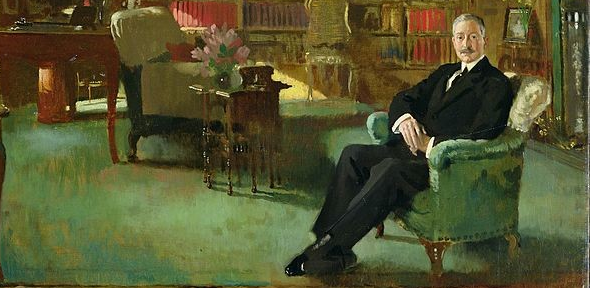
People
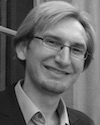 |
Gregor Babelotzky's research interests lie primarily in the area of German literature from the 18th century to modernism, with a special interest in historical-critical editing. |
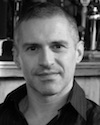 |
Mark Chinca's research spans several areas of medieval and early modern German literature in its comparative context: aesthetics and poetics; theory of fiction; ars moriendi; devotional and pastoral writing, especially relating to the Last Things; early Middle High German literature; text editing; the Kaiserchronik. |
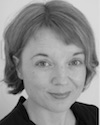 |
Sarah Colvin's research interests are in the areas of narrative theory and practice; cognitive and ethical approaches to literature; women’s writing and prisoner narratives; and writing and (political) violence. Her current research is on narratives by prisoners and the use and functions of arts in prisons, and she is a steering committee member for the National Criminal Justice Arts Alliance (NCJAA). |
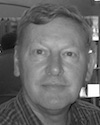 |
John Guthrie works on German literature, thought and culture from the eighteenth century to the present day, Anglo-German literary relations in the eighteenth, nineteenth and twentieth centuries, German aesthetics and literary criticism, German drama and theatre, and translation and adaptation. |
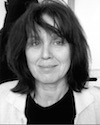 |
Annemarie Künzl-Snodgrass teaches the German language at all levels in the department of German & Dutch and has special interests in the teaching of ab initio German and advanced translation, lectures on Landeskunde topics, and the development of online language teaching materials. |
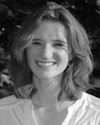 |
Charlotte Lee specialises in German literature and thought. Her first book was on Goethe, and her current project looks at the role of movement in the work of a range of poets. |
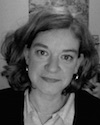 |
Silke Mentchen develops teaching material for German. She has developed on-line material, both for the Faculty’s teaching of translation (see here), and for potential students of languages, see here for examples: German modules for HE+ and German modules for multikultura, and Just-in-Time Grammar, as well as on-line A2- and AS level material for Villiers Park. Together with a colleague, she has published Upgrade Your German, a German grammar exercise book, and articles on the methodology and pedagogy on-line resources, see here and here. |
|
Annja Neumann works on literature and medicine in Modern German literature. Her research explores Medical Humanities and Digital Humanities through Literary Studies and is closely linked to the digital critical edition of Arthur Schnitzler’s middle period works. She is particularly interested in interrelations between medical topographies and poetics of doctor-writers. The conjunction between body and textuality also defines her research on 20th century poetry. |
|
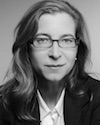 |
Lucia Ruprecht is researching across literature, dance, and film studies, from around 1800 to the 21st century. She has specific interests in theories of subjectivity, the relationship between performance and discourse, virtuosity as a cultural paradigm, cultures of gesture, and new theoretical approaches to dance historiography. |
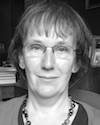 |
Sheila Watts researches the historical linguistics of German and the older Germanic languages, particularly Gothic, Old High German and Old Saxon. She also works on historical morphology, syntax, language stability and change. |
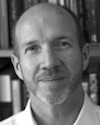 |
Andrew J. Webber’s research covers a wide range of textual and visual culture over the modern period. He has particular interests in questions of identity and place, in relationships between literature, film and other media, and in cultural theory. |
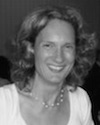 |
Dr Godela Weiss-Sussex's main research interests lie in the culture and literature of the twentieth and twenty-first centuries in the following areas: women’s writing, the works of German-Jewish writers produced in Germany and in exile; multi- and translingualism; concepts of 'Heimat' and belonging. Her main current research projects focus on: German-Jewish women’s writing in the 20th and 21st centuries; translingual writing; post-migrant imaginaries of belonging. |
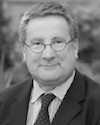 |
Joachim Whaley's research so far has concentrated on the history of the Holy Roman Empire in the early modern period. He has also written extensively on the German Enlightenment and its legacy in the nineteenth and twentieth centuries. Further fields of interest on which he has published regularly are the question of German identity since the fifteenth century, the German memory of the Reformation from the sixteenth century to the present and the historiography of medieval and early modern German history in the nineteenth and twentieth centuries. He is currently working on a larger project that will survey the history of German-speaking Europe from the Middle Ages to the present day. |
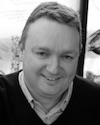 |
Chris Young has dual research expertise in medieval German literature and language (primarily of the twelfth and thirteenth centuries) and in the history of sport in modern Germany and Europe (including its mediatization in the early twentieth century). |


